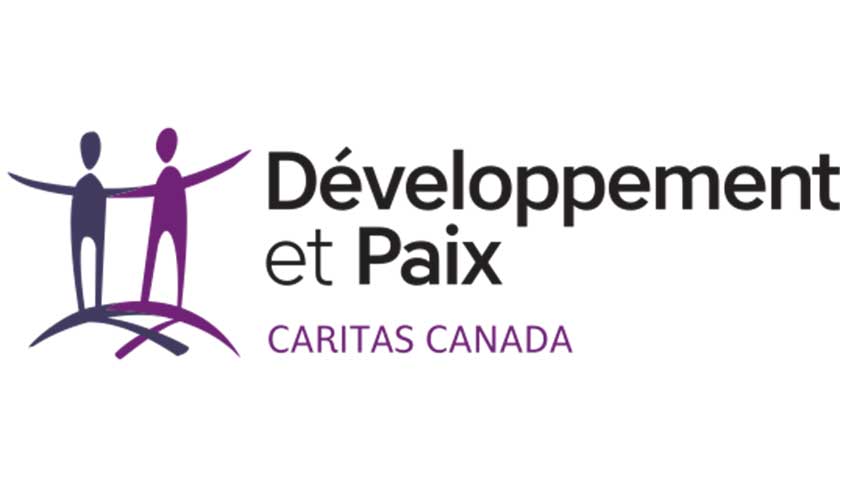Development and Peace calls for Canada to listen to the people in responding to the situation in Haiti

National
As the humanitarian and security crisis in Haiti deepens and pressure builds on Canada to lead a military intervention, the Canadian response must focus on helping Haitians find lasting solutions to the crisis, Development and Peace ― Caritas Canada warns.
Executive Director Carl Hétu noted, “Foreign military interventions have never resolved the issues that stifle Haiti’s development. Canada must base its strategy around supporting the people who are seeking to address deeply rooted inequalities; the marginalization of the impoverished majority; rampant corruption; and the abuses of human and political rights and the impunity of those who commit them.”
Development and Peace has been present in Haiti for some 50 years. In the 1970s, we supported the Quebec missionaries who accompanied the nascent popular movement that ended the Duvalier dynasty in 1986. Since then, we have helped farmers’, women’s and human rights groups promote human dignity and address the inequitable distribution of wealth in a country where 60 per cent of the people live below the poverty line and the top tenth of the population controls nearly half the wealth.
Today, as a humanitarian crisis unfolds, some 4.65 million Haitians―about half the population―face acute food insecurity. Development and Peace is supporting an emergency seed distribution project that will allow food-insecure families in southern Haiti to sow subsistence crops for this winter.
Our Haitian partner organizations are working in increasingly difficult conditions. Because armed gangs control access to the capital, Port-au-Prince, they have had to modify and reduce their operations. Although media reports indicate that the gangs’ longstanding blockade of the fuel terminal may have finally been broken, fuel remains in short supply, leaving people, including our partners, without access to reliable transport and electricity.
From the southern coastal city of Jacmel, Marie-Ange Noël, coordinator of women’s organization Fanm Deside (a Development Peace partner), reported, “The office is operating on reduced hours because we cannot stop regular services to the victims of gender-based violence. It’s impossible for us to organize any large gatherings because of protests.”
Since the assassination of President Jovenel Moïse in July 2021, the Core Group of countries involved in Haiti, including Canada, has thrown its support behind Prime Minister Ariel Henry. His government, which was not sworn in as required by the constitution, has allowed impunity to flourish and gang activity to spiral out of control. Its decision to cut the lifeline of fuel subsidies under pressure from the International Monetary Fund has doubled many prices and plunged Haiti even deeper into calamity.
Haitian journalist and Development and Peace ally Colette Lespinasse wrote, “This decision exacerbated things for the already overburdened people who receive virtually no state services and brought them to the streets. All over the country, in the capital as well as the provincial cities, people demonstrated to demand the withdrawal of this measure and to reject this mode of socially insensitive governance.”
While United Nations Secretary General António Guterres, the U.S. government and Prime Minister Henry dismissed this protest movement as gang activity, Lespinasse clarified that the protestors who are speaking out against insecurity and inflation are actually the victims of the gangs.
Haitians have been mobilizing in this manner since at least 1986. The roots of the current situation lie in the mass anti-corruption movement of 2018. At that time, people were demanding an inquiry into the whereabouts of Petrocaribe funds. Derived from the sale of oil provided by Venezuela on discounted deferred payment terms, these funds were meant to finance development projects, but were found by Haitian courts to have disappeared after being entrusted to the political elite. To intimidate activists, some of these elites armed and deployed gangs that unleashed a reign of violence and murder in Port-au-Prince. These are the gangs that are now out of control.
Hétu said, “Given this situation, it’s no wonder that Haitians are exasperated with the international community’s response!” He said that Canada should focus its efforts on solutions that address the underlying issues of the crisis and broaden its discussions to include civil society and citizens’ groups, rather than restricting them to the de facto government.
Development and Peace recommends that Canada’s support to Haiti prioritize:
- An international commission to investigate the assassination of President Moïse and to punish those responsible;
- Investigations into emblematic cases such as the October 28 murder of opposition leader Eric Jean-Baptiste and the 2020 murder of judge Monferrier Dorval;
- A conclusion of the Petrocaribe funds corruption investigation, already conducted by Haitian courts, that allows the state to recover at least some of the embezzled funds;
- The broadening of the just-announced sanctions, which our partners deem insufficient, to impose visa cancellations and asset freezes on all financiers of the armed gangs;
- A push at the United Nations for stronger controls on the inflow of arms from the United States.
“Canada needs to pause momentarily and listen to Haitian voices,” Hétu said, reiterating, “A foreign military intervention is just not going to resolve the underlying issues that plague Haiti today.”

Comment
Comment
Add new comment